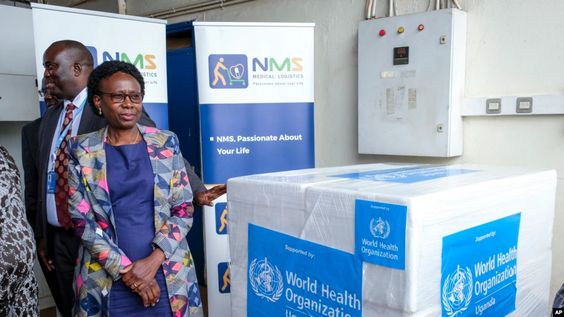Africa
Uganda declares the Ebola outbreak to be over

The World Health Organization said Uganda was free of Ebola on Wednesday, 42 days after the last case was found.
55 people have died as a result of the Sudan virus outbreak, which began in September. The announcement was made at a gathering in Mubende district, which is currently recognised as the heart of Uganda’s fifth Ebola outbreak.
Uganda’s health minister, Dr. Jane Ruth Aceng, stated that meetings at private facilities and household infections were the main sources of transmission. Physical touch, sexual contact, and trans-placental transmission were the three main channels of transmission.
Aceng stated, “I now affirm that all transmission chains have been completely halted.” And take this chance to announce that the outbreak is over and that there is no longer any active Ebola transmission in Uganda.
The most confirmed cases were in the Mubende district, which had 64 patients and 29 deaths.
Naiga Juliet was employed by Mubende Referral Hospital as a laboratory assistant at the beginning of the Ebola outbreak. Many people were hesitant to approach patients after the Ebola virus claimed the lives of roughly seven healthcare workers.
Juliet recalled that a patient was admitted on September 17 who tested positive for Ebola the following day. Juliet would eventually serve as the coordinator for the Ebola laboratory sample collection. That marked the beginning of the Ebola outbreak, and contacts were soon tracked down.
“I removed those specimens. Six of the eight patients had positive results. “I was terrified,” said Juliet. “I had to let my family and lawyers know what might happen. I experienced trauma and psychological abuse. Because of their anxiety, even my coworkers refused to go inside. However, I was truly aware of how to put on PPE and practise infection control, prevention, and management. “That’s what kept me alive.”
After the nearby Kassanda region reported 12 cases in just two days, an Ebola treatment facility opened at the end of October.
Kawonawo, which literally translates to “survivor,” is Nabuuma Maska’s third name. She lives in the Kassanda neighborhood. Maska claimed she visited a sick relative, not realising that the relative had the Ebola virus and would soon pass away from it.
Three days later, according to Maska’s account to VOA, she began exhibiting Ebola symptoms like a terrible headache, bleeding from the nose, diarrhoea, and vomiting.
She claimed that after calling an ambulance, she was transferred to the hospital, where she spent the next three weeks unconscious. She claimed that as she recovered consciousness, medical personnel hailed her with “welcome back, welcome back.”
Maska claimed that her village has since subjected her to social humiliation.
She claimed that after her family abruptly left her, her landlord evicted her for failing to pay her rent. She claimed that after losing her previous business, she is now unable to afford to buy food or pay for housing.
By the time the pandemic was over, Kassanda district had recorded 49 confirmed cases and 21 fatalities, out of a total of 143 cases and 55 fatalities nationwide.
Ugandans have been asked to maintain their vigilance and report any members of their community who exhibit symptoms resembling those of Ebola.
Working with foreign partners, the health ministry stated that it is still investigating the origin of the outbreak and the reason why Ebola outbreaks in Uganda often occur between July and October.
